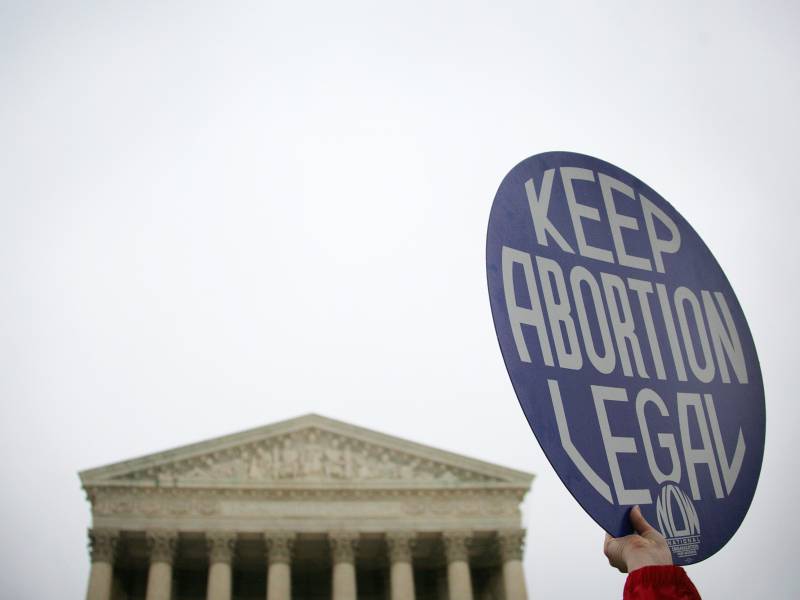Wayne says that despite a range of personal views, the membership as a whole is concerned about invasion of privacy, government overreach, and a massive stretch on legal resources if a wave of abortion-related criminal charges hits the U.S.
And that pain won’t be distributed equally.
“Whenever you’re talking about overcriminalization, you’re talking about money,” Wayne said. “Rich people will always be able to lawyer up. They will always have access to attorneys. Poor people will be left behind.”
She points to an already overwhelmed public defender system, which people can’t access until after their legal troubles have started.
“I don’t get a lawyer, if I’m poor, until I’m actually charged with a crime in this country in most jurisdictions,” she said. “So I have to wait until that moment until I get charged. If I have money, access to counsel, I get advice on the front end of being able to perhaps avoid the consequences that I would face if I didn’t have money.”
The perfect victim
A future without Roe v. Wade ultimately leads back to that courtroom and jury, where the task at hand becomes navigating perception. The burden of being “the perfect victim” is nothing new when it comes to cases of harassment, sexual assault and domestic violence.
“To be a perfect victim of sexual assault, human trafficking or intimate partner violence, you cannot also struggle with addiction, poverty or mental illness,” wrote Amanda Rodriguez, a former federal prosecutor and the executive director of Baltimore’s rape crisis center, TurnAround Inc, in a 2021 op-ed for the Baltimore Sun. “To be a perfect victim, you cannot accept a drink, engage in commercial sex or walk alone at night. You cannot wear tight clothes or have a criminal record. You cannot be human.”
Except with a criminalized abortion, the “victim” isn’t pressing charges. They’re fighting them.
“At the end of the day, it’s going to be the bias going into the courtroom,” Wayne said. “The bias dealing with the district attorney who has preconceived notions of their own about how these cases should be prosecuted, the judges who oversee these cases and how they feel—and then ultimately go to the jurors’ bias.”
And that’s a main focus of NACDL’s training at the moment: preparing to help clients who have been charged with abortion-related crimes look sympathetic and relatable to a group of their peers (wherein the degree of difficulty varies, depending on your race.)
But in some cases, that might not be enough. More than a dozen states have trigger laws that immediately went into effect after Roe was lifted. The Supreme Court has just granted state lawmakers the freedom to ban abortion however they want.
So when a jury is asked to determine whether someone broke a law post-Roe, even a “perfect victim” might still be a guilty one.

9(MDAxOTAwOTE4MDEyMTkxMDAzNjczZDljZA004))

